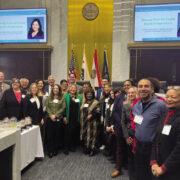FACEBOOK CEO Mark Zuckerberg announced Monday, May 4, a platform that extends Internet access via mobile devices to those in developing countries facing obstacles to connectivity.
“The goal of Internet.org is to allow more people to experience the benefits of being online,” according to a Facebook release.
“For most people who aren’t online, the biggest barrier to connecting isn’t lack of infrastructure – more than 80 [percent] of the world’s population already lives within range of a mobile signal. Instead, the biggest challenges are affordability of the Internet, and awareness of how Internet services are valuable to them.”
The platform provides free basic services online – such as job listings, health, education and maternity resources – which are presented in a simple and data-efficient format, enabling operators to offer them cost-free. Wikipedia, the health site Facts for Life and BBC are among sites Internet.org users can access, but the platform is open to more developers who wish to join.
Zuckerberg cited research stating that for every 1 billion people who gain access to the Internet, more than 100 are lifted from poverty.
“There are more than four billion people who need to be connected. And if we can connect them, then we’ll raise hundreds of millions of people out of poverty,” he said.
Since the project launched in 2014, countries that have gained Internet access include Colombia, Guatemala, Kenya, Ghana, India, Indonesia, Tanzania and Zambia. Those in the Philippines are also among those surfing the web on the platform through a partnership with Talk ‘N Text, Sun and Smart.
“Smart’s partnership with Facebook is a big boost to our ‘Internet for All’ campaign, an advocacy we have been strongly pushing for,” said Napoleon Nazareno, Smart Communications president and CEO, when the platform launched in the country in March. “By launching Internet.org app with Facebook in the Philippines, we are making useful information within reach of millions of Filipinos.”
Estimates from the Internet and Mobile Marketing Association of the Philippines state that only 38 percent of the country’s population had access to the Internet by mid-2014.
Through Internet.org, Philippine users can access information on several websites, including PhilStar, Inquirer, Rappler, Interaksyon, ESPN, SPIN.PH, Accuweather, RainCheckPH and more.
Internet.org has its doors open for developers wanting to join. They are not required to pay, although certain criteria must be met. Among these include that websites cannot require high bandwidth, must be optimized for both smartphones and non-smartphones, and cannot require JavaScript or SSL/TLS/HTTPS.
The announcement of the project opening up to developers follows backlash from critics who suggest its requirements favor access to certain sites and apps compared to others, violating principles of net neutrality. Zuckerberg, however, said net neutrality is not equal if the majority of people cannot participate. He also said providing the entire Internet for free is not sustainable because of the costs involved.
“It costs tens of billions of dollars every year to run the Internet, and no operator could afford this if everything were free,” he said.
But by granting access to basic services the web in a cost-efficient, non-data intensive format to those in developing countries, Zuckerberg said the program supports itself.
“When people use free basic services, more of them then decide to pay to access the broader Internet. And this enables operators to keep offering these basic services for free,” he said.
Network operators participate in the program based on the belief users will invest in broader access to the web after having accessed some content for free.
Further opposition to the project stems from privacy concerns.
“Because of the competitive aspect of Internet.org, if my competitor is on it, I will feel compelled to be on it as well,” said Nikhil Pahwa, a volunteer for the SaveTheInternet.in campaign, according to BBC.
“And all of this data will be available to Facebook and – because of the lack of HTTPS – that data can also be sniffed by telecom operators and by governments.”
Facebook confirmed that it will be able to monitor users’ activity.
“Yes, we do know what users are accessing. We do have some of that information. But all of it is governed by Facebook’s standard data policies,” Chris Daniels, the firm’s vice president of product, told the Hindustan Times.
Josh Levy from Wired also criticized the program for its lack of transparency in disclosing details regarding user data policies and responding to government requests. And because traffic through the platform must go through Facebook’s servers, Levy said the project isn’t the Internet, but rather “Facebooknet.”
He also says the goal to lead users into paying for broader access fails to acknowledge that millions of Internet.org users cannot afford those plans.
“These users could get stuck on a separate and unequal path to Internet connectivity, which will serve to widen – not narrow – the digital divide,” Levy wrote. (With reports from BBC, Inquirer, Philstar and Wired)


